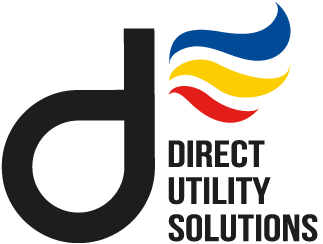About Our NPORS Training Courses
NPORS is probably one of the most widely recognised qualification for those involved in plant operations and your NPORS card will provide evidence of the skills and abilities that plant operators require.

Our NPORS COURSES
We provide professional training and testing conducted by qualified and experienced instructor. This can be undertaken at our training facilities or you can get the training and/or testing you need at your workplace if the necessary machinery is available. After booking your course please let us know if you require the NPORS/CSCS Card (required for construction industry) or the traditional NPORS card (suitable for sectors other than construction). Our courses include:
- N017 Abrasive Wheels – Hand Held Cut Off Saw
- N301A Abrasive Wheels Awareness
- N031 Asbestos Awareness
- N304 Cable Avoidance Tools
- S031 Construction Site Safety Manager
- S032 Construction Site Safety Manager – Refresher
- S029 Construction Site Safety Supervisor
- S033 Construction Site Safety Supervisor – Refresher
- N201 Excavator 180°
- N202 Excavator 360°
- N016 Excavator Micro (up to 1 Tonne)
- N204 Forward Tipping Dumper
- N139 Forward Tipping Mini Dumper
- N106 Log Handler
- N107 Lorry Loader
- N704 Manual Handling
- N014 Marine Knuckle Boom Crane
- N722 Material Re-Handler 360°
- N133 Plant Machinery Marshal
- N132 Plant Mover
- N034 Plant Supervisor Awareness
- N726 Quick Hitch Awareness
- N714 Safety at Street & Road Works
- S001 Safety Awareness
- N403 Vehicle Marshal.


SHEA (Water) EUSR Safety, Health & Environmental Awareness
The SHEA (Safety, Health and Environmental Awareness) Water Passport Scheme Training course provides a uniform approach to health, safety and environmental awareness across the utilities sector. The passport scheme has been developed in collaboration with industry in order to meet Health & Safety Executive (HSE) guidelines.
This water industry training programme now includes additional modules on highway working and excavations, sewerage network and process operations.
The 1 day course can accommodate up to 12 delegates per day.
SHEA Modules
The SHEA Water scheme takes a modular approach. There are eight modules with six modules designated as ‘core’ modules, which are pertinent for all utility sectors. Two modules provide the water industry specific content.
- Module 1: Understanding our workplace responsibilities
- Module 2: Understanding the effects of our work on the environment
- Module 3: Identifying and controlling risks
- Module 4: Common hazards in the workplace
- Module 5: Sewerage network and process operations (Scheme specific module)
- Module 6: Highway working and excavations (Scheme specific module)
- Module 7: Occupational health hazards
- Module 8: Responding to emergencies
Candidates must complete all eight modules and pass the SHEA Water assessment and gain EUSR SHEA Water registration.
Who should attend?
All individuals involved in the operational activities of the water industry who require access to sites, both permanent and temporary, including all levels of operatives, supervisors and management.
EUSR NATIONAL WATER HYGIENE
The National Water Hygiene training and resulting ‘Blue Card’ is essential for anyone who enters a clean water site or is engaged in operations on the clean water network, whether in contact with the water or not. This qualification is typically mandated by all UK water companies. Created in 2006, the ‘Blue Card’ replaced all water company specific hygiene schemes and removed the need for workers to undergo separate testing and health screening. Essentially, this training removed the unnecessary need for individuals to carry multiple competency cards.
Instruction informs delegates of their responsibilities and provides an understanding of all relevant aspects of working with potable water. For example, the paramount importance of preventing pollution and contamination of clean water.
The half day course can accommodate up to 12 delegates per day.
The National Water Hygiene training consists of the following sessions:
- Module 1: The importance of water – Candidates reflect on the definition of wholesome water, the instructor draws attention to its importance as a food source as well as the implications of a world without clean water. The aim is to provide the delegate with an understanding of the scarcity of clean water. Therefore, the essential role that water plays in maintaining a healthy and functioning society is considered.
- Module 2: Water as a carrier of disease – Candidates obtain a clear understanding of how water can be a carrier of disease. During this session we explore the historical cases which established a better understanding of waterborne disease. How best practice was developed and the importance of studying the various illnesses that can be contracted through the ingestion of contaminated water. Exploration of the diseases that still being tackled today.
- Module 3: Potential contamination and its consequences – Covers the potential sources of water contamination across all areas of the UK water industry. Furthermore, provides and overview of the likely consequences should contamination occur.
- Module 4: Preventing contamination – Candidates examine the steps that an individual can take to prevent contamination of the clean water supply. Additionally broad and overarching actions that those entering water sites can take to safeguard water quality. Specific examples of working practices that can be adopted in high-risk scenarios.
